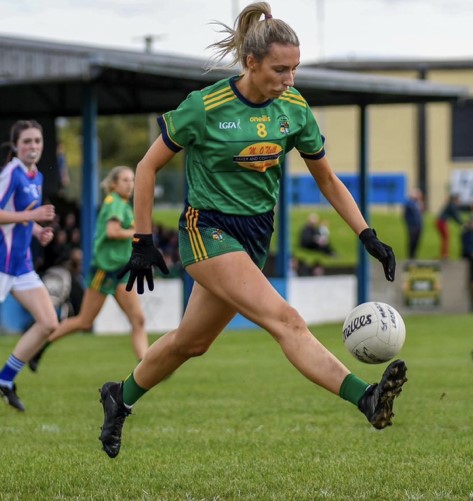
To mark International Women’s Day (March 8th), Aideen Dunne of EssenceMediacom and intercounty footballer with Louth, writes about the inequities that women still have to put up with while trying to balance their professional careers with their on-field commitments in the sporting world.
To coincide with this International women’s day, I wanted to reflect on both the career path I have chosen and the sport I love to play and how being a woman in those realms has been impacted.
When I joined EssenceMediacom it would be fair to say the leadership of the business was somewhat male skewed. It shouldn’t be that surprising, leadership in business has always been male skewed but what I have seen is that proper efforts are being made to ensure equity and recognition across the board. Although improvements can still be made it has been pleasing to see our business introduce schemes around mentoring and flexible working, ensuring equal pay and benefits and more flexible maternity and paternity leave.
Culturally there feels like a shift is being made, where women are finally getting some acknowledgement of the different life experiences they have and a better understanding of how it impacts them. It’s far from perfect, but at least it’s moving in the right direction.
However, in sport in Ireland it still feels like women are still seen as 2nd class citizens to some extent. Surveys shows 59% of people admit they have never attended a live female sporting event, 65% of people think women’s sport does not get enough media coverage in Ireland.
This has been born out of my own experience in Gaelic football, where inequalities and differences in minimum standards still exist.
Outside of the office, Gaelic football is my passion. I play intercounty football with Louth Ladies LGFA. We train 4 nights a week for 1.5-2 hours. 3 of those sessions are on the pitch and then one strength and conditioning session in the gym. We usually have a game on a Sunday which could be anywhere in the country. We are expected to do our own running and gym sessions the nights we don’t have squad training.
Balancing rigorous training with demanding work schedules is difficult and there are of course the physical and mental demands of competitive play: On top of that I often miss the many social events people join the media industry for.
As you can see it’s quite a commitment.
But still today in 2024 women do not receive the same benefits as men. In 2023 the GPA (Gaelic Players Association) fought to get the ladies a charter agreed upon which outlines the minimum standards when it comes to sports science support, provision of training and playing gear and travel and nutritional expenses. The GAA is a separate organisation to LGFA where the men receive different/more benefits than the ladies and this level of inequality will never be eliminated until the GAA, LGFA and Camogie Association work together as ‘One Association’ and share their resources.
Last year ladies’ county panels across the country staged protests before our championship games in June and July by sitting on the ground for a minute before the match and wearing t-shirts saying #united for equality. The charter has still not been introduced but is thankfully now being worked on with the GAA.
There is some irony that it is the media industry that I work in which has been doing the most to change things. There is the growth in televised matches, for example- TG4 agreed to show at least one game from each round of the national league in 2024 and the Division 1 & 2 finals, they will also show some championship games live.
We are also seeing greater representation of female role models in Gaelic football; this is welcome and also essential to empower and encourage younger girls into sport.
And although coverage is still lacking when it comes to the ladies game, it is great to see our client Lidl recently launch the campaign ‘GetBehindTheFight’ to try increase the attendance at the 2024 Lidl national league games (in which I play in) with a focus on inclusivity, empowerment and community engagement. Its aim is to fight for equal promotion and coverage of LGFA games alongside men’s Gaelic football.
We know that supporting women in the workplace can increase diversity leading to a wider range of perspectives, ideas, and solutions, which after all is the business we’re in. It helps with talent retention and employee morale, and the cost of lacking these last two factors is immeasurable.
So now it’s time for sport to get on the bus. For too long women’s sport has been marginalised and it shouldn’t be just up to the media to change it.




















